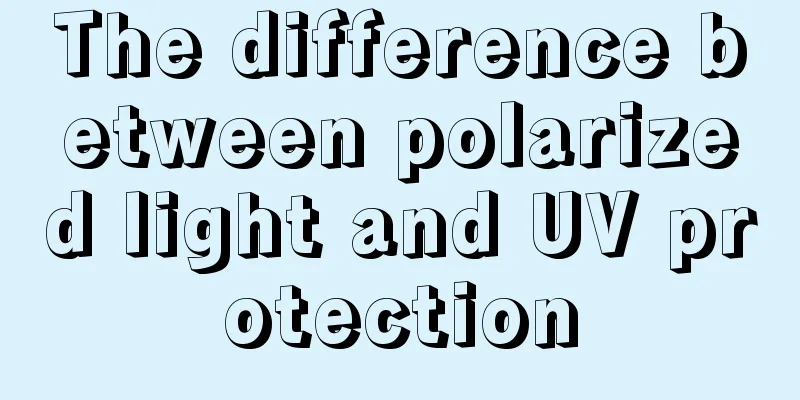The difference between polarized light and UV protection

|
Polarization means using the principle of reflection to avoid light, and UV protection means avoiding ultraviolet radiation. There are certain differences between the two. Although ultraviolet rays are a type of light, there are still certain differences between the two. Many people think that polarization means UV protection, which is wrong. However, many people don’t know this. So what is the difference between polarization and UV protection? The biggest difference between polarized sunglasses and sunglasses is how they handle reflected light. In the environment we live in, there are three types of light: direct light, reflected light and diffuse light. We cannot usually perceive diffuse light, but it is the most important type of light for our eyes to see objects; and direct light has a fixed light source (such as the sun), so as long as we pay a little attention, it will not cause harm to our lives. These common reflective objects in life often reflect light suddenly, causing a lot of inconvenience in our lives. For example, for a driver, the rearview mirror in front is an uncertain reflection light source. The water surface on the roadside or the smooth flat objects carried by passers-by can also become reflection light sources. These reflections may cause trouble or even danger to the driver. Polarized sunglasses are designed to filter out reflected glare, which can prevent vertigo. They can also make your vision clearer and reduce visual fatigue when traveling in summer. Of course, the price of such sunglasses will be much more expensive. If you are just going out for a walk, ordinary sunglasses will be enough to meet your needs. But whether you are driving or doing outdoor activities such as mountaineering and skiing, choosing a pair of polarized sunglasses will make you more relaxed and comfortable. The main difference is that the functions are different. While blocking ultraviolet rays, polarized filters can filter out the surrounding scattered light, allowing the eyes to see the target object more clearly. UV-proof sunglasses can only block ultraviolet rays but cannot filter out scattered light. |
<<: Why are ultraviolet rays stronger on cloudy days
>>: The hazards of salicylic acid
Recommend
How long can you live after surgery for malignant glioma
How long can a patient live after surgery for a m...
How to treat herpes?
The herpes virus is a relatively virulent virus t...
Which department should I go to for migraine
Headache is not a disease, but it can be fatal. M...
Is it suitable for pregnant women to eat kiwi fruit?
In fact, when it comes to kiwi fruit, such a simp...
A simple method for early detection of laryngeal tumors: listening to the sound and identifying blood
In recent years, due to changes in people's d...
What are the diagnostic methods for glioma
Generally, diseases are initially diagnosed based...
Examination for recurrence of bladder cancer
Bladder cancer is one of the most recurrent tumor...
What are the precautions for rotavirus vaccination?
As for vaccines, they are now mainly divided into...
Functional exercise after clavicle fracture surgery
When treating any disease, we must pay attention ...
What are the types of skin classification
Skin is an important part of the human body. It i...
The teeth in the jaw are not aligned
Everyone will have a period of tooth replacement....
The 5 most common causes of liver cancer Introduction to the early, middle and late stage symptoms of liver cancer
Liver cancer is a type of cancer in the liver, wh...
Can couples with nasopharyngeal cancer infect each other?
According to expert statistics, the proportion of...
Can breast acne be cured
Many people may not have heard of the disease cal...
Can white vinegar and flour remove spots?
When spots appear on your face, you will become v...









